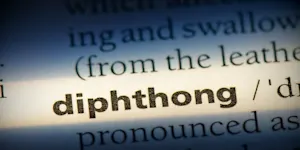What Makes This Word Tick
"Apologia" might sound like an apology, but it's actually more about defending or justifying something rather than saying you're sorry. It often involves a thoughtful explanation of one's beliefs or actions. It's the sort of word that fits neatly into a context where a defense is both necessary and intellectual.
If Apologia Were a Person…
Apologia would be that articulate friend who always has a well-reasoned response at the ready. You wouldn't catch Apologia apologizing for their actions, but rather explaining why those actions were entirely reasonable, thank you very much.
How This Word Has Changed Over Time
The word "apologia" has remained fairly consistent in its usage over time, often associated with formal defenses and justified explanations. While "apology" in modern English has come to mean expressing regret, "apologia" retains its formal connotation of justification, sticking to its ancient Greek roots.
Old Sayings and Proverbs That Use Apologia
While you might not find an old proverb explicitly using "apologia," the concept is gently reflected in sayings like "the best defense is a good offense" — implying that a strong justification can sometimes preempt the need for apology.
Surprising Facts About Apologia
A key surprise about "apologia" is that it shares the same root as "apology," yet they're quite different! This word is used frequently in academic circles, particularly in religious and philosophical texts, where deep, logical thought is required to defend a position.
Out and About With This Word
In real life, you might encounter "apologia" in legal settings or academic debates. It's a favorite among scholars who need to provide a robust defense for a thesis or argument. Don't be surprised if a politician uses it to convey a strong justification for a policy.
Pop Culture Moments Where Apologia Was Used
Pop culture doesn't often use "apologia" directly, but isn't it fun to imagine a lawyer on a courtroom drama delivering a dramatic "apologia" in defense of an innocent client?
The Word in Literature
"Apologia" finds its feet firmly planted in the realm of literature, notably with works like John Henry Newman's "Apologia Pro Vita Sua," a brilliant defense of his religious opinions. Such uses show the word's longstanding place in literature where deep, pensive thought is valued.
Moments in History with Apologia
Throughout history, many speeches and writings—Martin Luther's 95 Theses, for example—could be considered a form of apologia. These were thoughtful defenses that profoundly influenced public opinion and historical trajectories.
This Word Around the World
In Spanish, "apología" carries a similar sense of defending or praising. It's intriguing how the word maintains its formal tone across different languages, often used in legal contexts or when discussing ideologies.
Where Does It Come From?
"Apologia" traces back to Greek, where "apologia" literally means a speech in defense. Over the years, it evolved through Latin to Middle English, maintaining its essence of a formal justification all the while.
How People Misuse This Word
Some might mistakenly use "apologia" when they actually mean "apology," thinking it implies regret rather than a defense. It's a tricky mix-up but an important distinction to maintain.
Words It’s Often Confused With
Apology: Often used interchangeably, but this implies regret rather than a defense.
Defense: While similar, a defense can be broader and not limited to formal speech or writing.
Justification: A justification can be informal, whereas an apologia is more about structured defense.
Additional Synonyms and Antonyms
Synonyms: defense, justification, vindication
Antonyms: accusation, criticism, reprimand
Want to Try It Out in a Sentence?
"His detailed apologia for the new policy left the critics momentarily speechless, covering every objection they had raised."
















